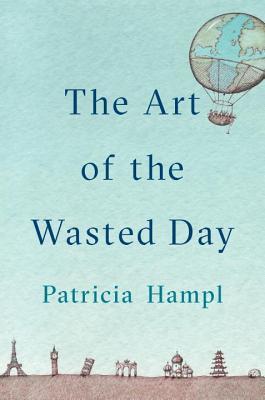
A spirited inquiry into the lost value of leisure and daydream The Art of the Wasted Day is a picaresque travelogue of leisure written from a lifelong enchantment with solitude. Patricia Hampl visits the homes of historic exemplars of ease who made repose a goal, even an art form. She begins with two celebrated eighteenth-century Irish ladies who ran off to live a life of "retirement" in rural Wales. Her search then leads to Moravia to consider the monk-geneticist, Gregor Mendel, and finally to Bordeaux for Michel Montaigne—the hero of this book—who retreated from court life to sit in his chateau tower and write about whatever passed through his mind, thus inventing the personal essay. Hampl's own life winds through these pilgrimages, from childhood days lazing under a neighbor's beechnut tree, to a fascination with monastic life, and then to love—and the loss of that love which forms this book's silver thread of inquiry. Finally, a remembered journey down the Mississippi near home in an old cabin cruiser with her husband turns out, after all her international quests, to be the great adventure of her life. The real job of being human, Hampl finds, is getting lost in thought, something only leisure can provide. The Art of the Wasted Day is a compelling celebration of the purpose and appeal of letting go.
Author

Patricia Hampl’s most recent book is The Florist’s Daughter, winner of numerous “best” and “year end” awards, including the New York Times “100 Notable Books of the Year” and the 2008 Minnesota Book Award for Memoir and Creative Nonfiction. Blue Arabesque: A Search for the Sublime, published in 2006 and now in paperback, was also one of the Times Notable Books; a portion was chosen for The Best Spiritual Writing 2005. Patricia Hampl first won recognition for A Romantic Education, her memoir about her Czech heritage, awarded a Houghton Mifflin Literary Fellowship. This book and subsequent works have established her as an influential figure in the rise of autobiographical writing in the past 25 years. She is the author as well of two collections of poetry, Woman before an Aquarium, and Resort and Other Poems. And she has published Spillville, a meditation on Antonin Dvorak's 1893 summer in Iowa, with engravings by Steven Sorman. Virgin Time, about her Catholic upbringing and an inquiry into contemplative life, is available in a recent paperback. I Could Tell You Stories, her collection of essays on memory and imagination, was a finalist in 2000 for the National Book Critics Circle Awards in General Nonfiction. Four of her books have been named "Notable Books" of the year by The New York Times Book Review. A Romantic Education appeared in a new edition with a post-Cold War “Afterword” in honor of the tenth anniversary of the Velvet Revolution in 1999. In 2001, Carnegie Mellon Press chose Resort and Other Poems for its Contemporary Classics series. In 2004 Borealis Books (of the Minnesota Historical Society Press) published The Short Stories of F. Scott Fitzgerald edited and with an introduction by Patricia Hampl. And in fall 2008 Tell Me True: Memoir, History and Writing a Life came out from the same imprint, co-edited by Ms. Hampl and Elaine Tyler May with essays by 14 memoirists including the editors. Ms. Hampl’s fiction, poems, reviews, essays and travel pieces have appeared in many publications, including The New Yorker, Paris Review, The New York Times, Los Angeles Times, Best American Short Stories and Best American Essays. She has received fellowships from the Guggenheim Foundation, Bush Foundation, National Endowment for the Arts (twice, in poetry and prose), Ingram Merrill Foundation, and Djerassi Foundation. In 1990 she was awarded a MacArthur Fellowship. Ms. Hampl is Regents Professor and McKnight Distinguished Professor at the University of Minnesota in Minneapolis where she teaches fall semesters in the MFA program of the English Department. She is also a member of the permanent faculty of the Prague Summer Program. She regularly gives readings, lectures and workshops across the country and internationally.